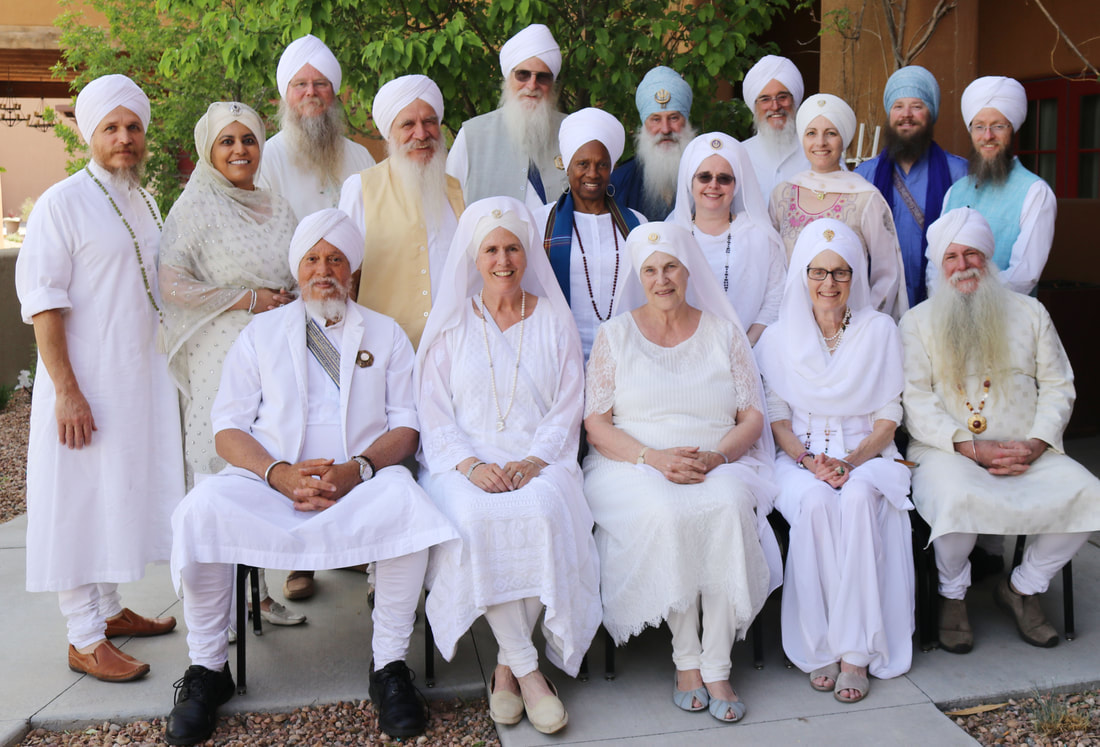Letter from the Secretary-General of Khalsa Council
To International Khalsa Council Members and SDI Ministers:
October 2, 2020
Sat Nam dear members of our 3HO, Sikh Dharma, and KRI Community,
This year has proven to be challenging in more ways than one. As we joined the world in bracing for a pandemic, our own organization had to face the difficult situation of allegations of abuse. As a religious organization with a commitment to high ethical standards, we took formal and immediate steps to address the claims, commission an independent investigation from An Olive Branch, and publish the findings for all to review and understand.
The conclusions drawn from An Olive Branch's report were shocking. However, we must recognize that valued individuals in our community have experienced harm and that the report's conclusions have contributed to divisiveness within the community. In order to move forward, we must work together to understand one another and find a way to heal personally and as a whole. Therefore, we are embarking on a program of Compassionate Reconciliationto restore and preserve our teachings and way of life for the long-term. This process will be lengthy and complex, but it is critical to our future.
We want to help you understand the path forward as well as well as encourage all to support and engage with the Compassionate Reconciliation process as it is developed and implemented. We have prepared a series of questions and answers to provide more detail about the program's purpose and the steps ahead:
Why are we embarking on a program of Compassionate Reconciliation?
Acts that result in personal harm do more than affect the individuals directly impacted. Their ramifications radiate to other people, relationships, and even entire communities. This ripple effect is what we, as an international community, are feeling now in the wake of the report and are seeking to address through a process of Compassionate Reconciliation.We are embracing this process as a pathway to repairing the harm done, restoring the community's trust, and preserving our teachings and organizations for the future.
Why is this process so important as we move forward, and what should we expect?
The Compassionate Reconciliation initiative will be unique to our situation, but it is based on the time-proven principals of restorative justice. In a restorative justice approach, the wrongdoing is addressed, but so is the harm felt by the many social layers touched by the wrongdoing. Such an approach has been proven to increase respectful dialogue among those who are in conflict and to encourage collaboration in rebuilding safer and more peaceful communities.Restorative justice has three main components:
- Including all parties impacted by the wrongdoing
- Facing and exploring all sides of the experience
- Making amends for the harm done
Who will the Compassionate Reconciliation program engage?
Because there are many facets to our situation, the Compassionate Reconciliation program is intended to engage many sides, including:
- Those who were directly harmed by sexual misconduct.
- Children who suffered in the India school program.
- Yoga teachers who feel confused by the presentation of our training.
- First generation pioneers who feel alienated and abandoned by what has happened.
- What recommended actions could result from the Compassionate Reconciliation process?
Making amends for the "harm done" will likely involve several components, which will be determined as we progress through the process. Each aspect of the community and those harmed will be considered individually while maintaining awareness of the whole, but any combination of the following potential actions -as well as others that may come to light during the process -may be considered: - Increased dialog to achieve reconciliation
- Apologies from individuals or on behalf of the organization
- Financial restitution such as medical expenses or counseling services
- Continued listening events to educate the community
- What are the next steps?
In Service and Consciousness,
Siri Singh Sahib Corporation
Pictured below are the members of the 2017 Siri Singh Sahib Corporation Board
back row, left to right: Dharma Singh Khalsa (retired), Harijot Kaur Khalsa (resigned March 2020), Guru Amrit Singh Khalsa (resigned June 2020), Amrit Singh Khalsa (resigned June 2020), Gurutej Singh (active), Guru Sangat Singh (active), Sahaj Singh (active),
middle row: Harijot Kaur Khalsa (resigned March 2020), Sat Hari Singh Khalsa (retired), Krishna Kaur Khalsa (resigned June 2020), Amrit Kaur (Chief Dharmic Counsel [lawyer]), Gurujot Kaur (active board member, Secretary-General Khalsa Council, CEO Sikh Dharma International, Member of Collaborative Response Team), Guru Darbar Singh (resigned October 2020)
front row: Gurujodha Singh Khalsa (President, active), Sardarni Guru Amrit Kaur (Siri Sikdar Sahiba, on leave), Kulwant Kaur Khalsa (active), Sat Bachan Kaur Khalsa (retired), Viriam Singh Khalsa (active)
active members not pictured: Bhai Sahiba Bibiji Inderjit Kaur, Ek Ong Kaar Kaur, Guruka Singh Khalsa, Guruprem Singh Khalsa, Sham Kaur Khalsa
